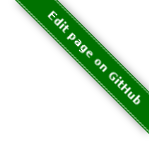show_context_help = 1
cgi.cfg
The cgi.cfg is mainly the same as in Nagios or Icinga but not all values are used. Find a list of used parameters in the following list.
All config values here, except the roles and authentication related can be set in the thruk_local.conf as well.
Starting with v3.28 it is possible to set cgi.cfg values from the thruk_local.d folder as well.
show_context_help
DEPRECATED: setting this has no effect with Thruk 3.x or later.
Displays an icon with context specific help on most pages.
ex.:
use_authentication
Determines whether to use authentication or not. If enabled, Thruk will use the REMOTE_USER from the apache environment as authenticated user name. So the authentication has to be done by the webserver. Authorization is done by Thruk.
ex.:
use_authentication = 1
use_ssl_authentication
If enabled, the authenticated username is taken from the SSL_CLIENT_S_DN_CN environment instead of the remote user.
ex.:
use_ssl_authentication = 1
default_user_name
The default user will be used if no username has been provided by the webserver. You don’t have to set a default user.
ex.:
default_user_name = thrukadmin
refresh_rate
Number of seconds after which most pages are refreshed automatically.
ex.:
refresh_rate = 90
escape_html_tags
Determines whether html output from plugins is escaped or not.
ex.:
escape_html_tags = 1
action_url_target
Sets the target of the action url links.
ex.:
action_url_target = _blank
notes_url_target
Sets the target of the notes url links.
ex.:
notes_url_target = _blank
lock_author_names
If enabled, user are not allowed to change the author name for commands.
ex.:
lock_author_names = 1
roles
There are several roles available through the authorized_for_ options. Each
role can also be assigned with the corresponding contact_group option authorized_contactgroup_for_.
You can use the the * asterisk to assign everyone to a certain role.
Starting with Thruk v2.46 you can use full wildcard support and so something like:
authorized_for_admin = *admin
authorized_for_admin
List of usernames who have privileged access to everything. These contacts will receive all other roles except the read_only role.
You may use wildcards here.
ex.:
authorized_for_admin = thrukadmin
Note: For historical reasons (there was no explicit admin role in the past), any user
which has the authorized_for_system_commands and the authorized_for_configuration_information
role will also gain the full admin role.
This is considered deprecated and might change in the future.
Change this behavior with the 'admin_role_from_system_and_conf' setting.
authorized_for_system_information
List of usernames who have access to the system and process information pages. You may use wildcards here.
ex.:
authorized_for_system_information = thrukadmin
authorized_for_configuration_information
List of usernames who have access to the configuration information pages. You may use wildcards here.
ex.:
authorized_for_configuration_information = thrukadmin
authorized_for_system_commands
List of usernames who are allowed to send system commands. You may use wildcards here.
ex.:
authorized_for_system_commands = thrukadmin
authorized_for_all_services
List of usernames who are authorized to view all services. You may use wildcards here.
ex.:
authorized_for_all_services = thrukadmin
authorized_for_all_hosts
List of usernames who are authorized to view all hosts. You may use wildcards here.
ex.:
authorized_for_all_hosts = thrukadmin
authorized_for_all_service_commands
List of usernames who are authorized to send commands for all services. You may use wildcards here.
ex.:
authorized_for_all_service_commands = thrukadmin
authorized_for_all_host_commands
List of usernames who are authorized to send commands for all hosts. You may use wildcards here.
ex.:
authorized_for_all_host_commands = thrukadmin
authorized_for_public_bookmarks
A comma-delimited list of usernames that can manage public bookmarks.
ex.:
authorized_for_public_bookmarks = thrukadmin
authorized_for_broadcasts
A comma-delimited list of usernames that can manage broadcasts.
ex.:
authorized_for_broadcasts = thrukadmin
authorized_for_business_processes
A comma-delimited list of usernames that have the permission to create and edit business processes.
ex.:
authorized_for_business_processes = thrukadmin
authorized_for_panorama_view_media_manager
A comma-delimited list of usernames that have the permission to upload and overwrite status icon sets and background images in panorama view dashboards.
ex.:
authorized_for_panorama_view_media_manager= = thrukadmin
authorized_for_reports
A comma-delimited list of usernames that have full access to the reporting feature.
ex.:
authorized_for_reports = thrukadmin
authorized_for_read_only
A comma-delimited list of usernames that have read-only rights in the CGIs. This will block any service or host commands normally shown on the extinfo CGI pages. It will also block comments from being shown to read-only users.
ex.:
authorized_for_read_only = viewer
